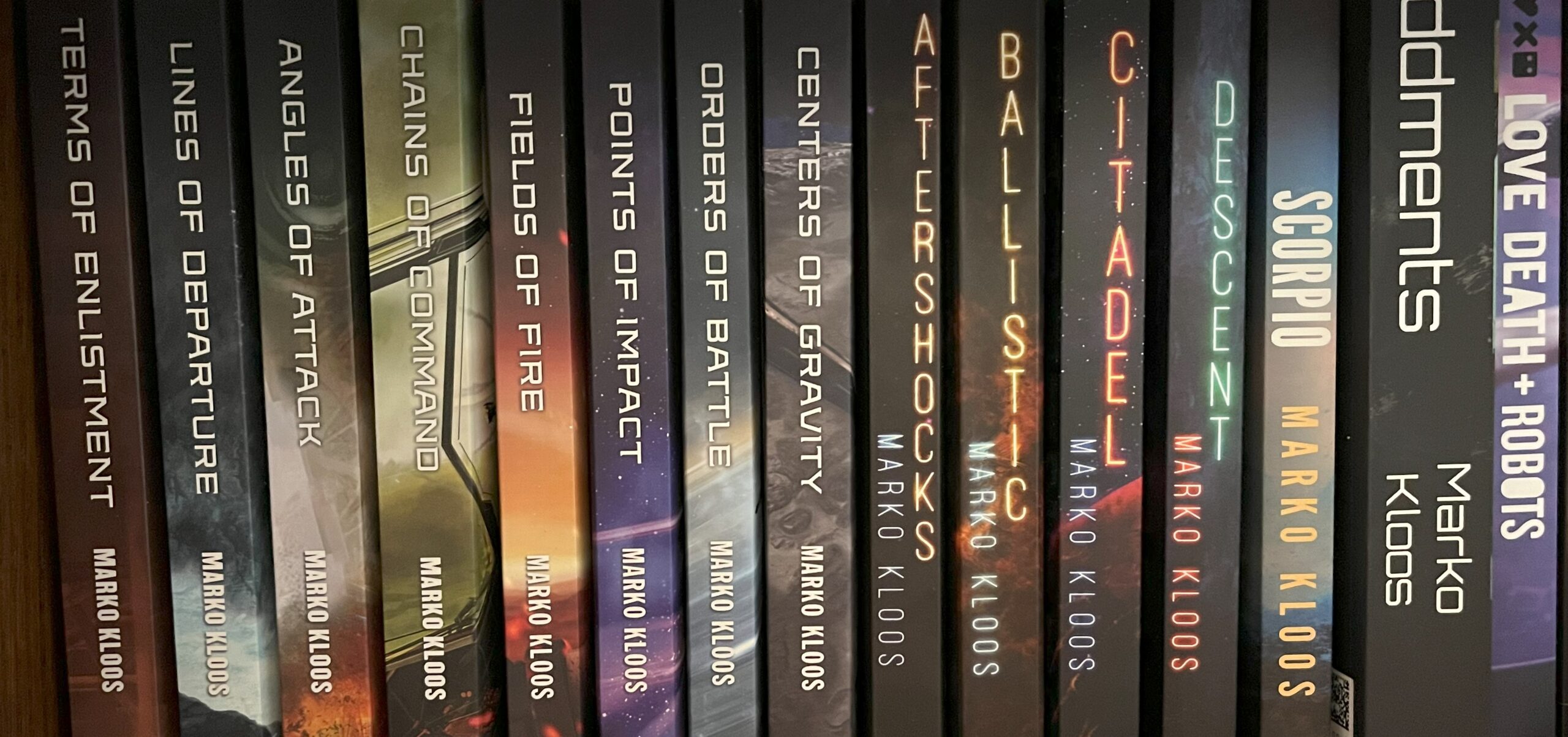A reader on Amazon.com caught a detail about the jacket text for LINES OF DEPARTURE and wondered why Andrew is referred to as an officer when he was merely an acting petty officer at the end of TERMS OF ENLISTMENT, and the Kindle sample of LINES gives his new rank as Staff Sergeant. (Hey! Navies don’t use that rank!)
Here’s the explanation I provided just in case someone else starts reading LINES and gets confused as to why Mr. Grayson now has an Army rank:
In the almost five years between TERMS and LINES, the NAC Defense Corps was reorganized into a unified service structure similar to the current Canadian model. Navy, Marines, and Territorial Army were all rolled into one big happy family. The new service structure is organized into Fleet Arm, HD (Homeworld Defense), and SI (Spaceborne Infantry). (As Andrew points out in LINES: “We needed new guns and starships to fight the new threat. What we got instead were new beret colors and shoulderboards.”)
Andrew is an acting Petty Officer at the end of TERMS and (briefly) a proper PO before the rank structures change. In the reorganized NAC Defense Corps, all the ranks are Army style ranks, whether you fly a drop ship, command a starship, or trudge around as infantry. Throughout LINES, Andrew is an E-6 (Staff Sergeant).
The jacket copy got this particular detail slightly wrong (Andrew is a non-com, not an officer). I pointed it out to the copyeditor, but they didn’t correct it in time.
I trimmed a bunch of stuff from the prologue, and as a result it may not be entirely clear at first that this reorganization happened, so if you’re at all wondering what the deal is with the NAC ranks, there you have it.

Pardon me if this has been asked and answered before, Markos. I recall your military service was in the Bundeswehr. I realize that large parts of the experiences of military basic and later training will be common to most Western-style militaries. I was wondering how much you Americanized (or Canada-ized, would that be North Americanized?) Andrew’s experiences, and in what ways?
I’ll make that a separate blog post later this week, LJ.
C-90, I disagree….
Junior Enlisteds (JEs) work for a living. Junior NCOs supervise JEs and listen to officers. Senior NCOs supervise Junior NCOs and try to train Junior Officers (JOs). JOs listen to Senior officers and watch the Senior NCOs get the job done (and fill out reams and reams of paperwork).
Senior officers (if they are smart) tell the Senior NCOs what they want done and wait for it to happen.
Rick T (MM1(ss) E-6)
NCO’s work for a living, Officers with commissions only think up things for the NCO’s to do.
…reorganized into a unified service structure similar to the current Canadian model. Navy, Marines, and Territorial Army were all rolled into one big happy family.
Bwa-ha-ha-ha!
You haven’t spoken to any Canucks lately, have you?
Don’t be petty, Hank, it doesn’t become you. 😉
I had no choice. Heh. 🙂
Yeah, I was an E-6 in the Navy, and I was an officer, albeit a petty one.
If you want to be quibblish about this, a Non-Com IS a officer, just not Commissioned or Warranted. Their authority is derived from that delegated to them by the officers appointed above them. No one argues that a police officer is called an officer be they a basic patrolman, sergeant, lieutenant, captain, or chief. They all have authority granted to them by statute of law. Military non-coms will be the first to tell you that they’re not officers and not to call themselves “Sir” or “Ma’am,” because their “parents were married,” but officers they are.